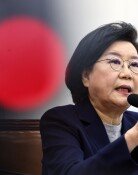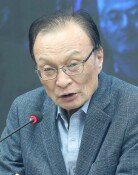Hasty nominations for general elections threaten democratic values
Hasty nominations for general elections threaten democratic values
Posted March. 07, 2024 07:51,
Updated March. 07, 2024 07:51
As the deadline for candidate nominations in the upcoming April 10 general elections approaches, both the ruling and opposition parties nominate candidates who appear to lack a direct connection to the constituencies for which they are nominated. Park Sung-joong, a two-time People Power Party lawmaker representing Seocho-B, Seoul, has been assigned to Bucheon, Gyeonggi, following his defeat in the nomination race. Similarly, former PPP lawmaker Kim Yong-tae, who served three terms in Yangcheon-B, Seoul, is now a candidate for Goyang-D, Gyeonggi. Former Democratic Party lawmaker Lee Gwang-jae, who served three terms in Gangwon Province and governorship in Gyeonggi Province, has been nominated for Bundang-A, Gyeonggi, instead of his initially intended Jongno constituency. Lee Un-ju, who served two terms in Gwangmyeong-B under the Democratic Party and ran in Busan four years ago under the People Power Party, returned to the Democratic Party and is currently participating in the primaries for Yongin-D, Gyeonggi.
While political parties assert that these inconsistent nominations are an unavoidable part of their election strategy, the reality is that such hasty and impromptu decisions severely limit the options available to voters. With just one month remaining until the elections, voters are compelled to make choices without sufficient time to thoroughly investigate and verify the suitability of the candidates who will potentially represent their constituency and influence their lives for the next four years. It appears that the primary concern of political parties is winning the general elections and preventing intraparty conflicts that may arise from individuals who fail to secure nominations. Neither party seems to understand that voters are deprived of the fundamental right to select candidates who genuinely align with their values and interests.
Candidates feel bewildered, even though they acknowledge that receiving a hasty nomination is preferable to not being nominated. The timeframe of just one month leaves them scrambling to familiarize themselves with a constituency, its streets, and its people. Facing difficulties in crafting pledges tailored to the region's specific needs, these candidates rely on guidance from city and district council members, leading to a repetition of previous pledges. As a result, promises to secure essential finances for the development of their constituencies may come across as mere rhetoric. Some candidates candidly admitted that they are equally perplexed by the situation.
Looking ahead to the post-election scenario, the existing nomination system appears to contribute to a regression in the political landscape. Candidates find themselves nominated to constituencies that were not even on their radar a mere month ago, making it difficult to expect them to keep engaged in the politics of the respective constituencies once the general elections end. If this pattern continues, a new political figure might emerge four years later as part of the “strategic nomination” scheme, “running for challenging constituencies.” The practice of hastily nominating candidates who lack genuine connections to the relevant constituencies not only undervalues the constituents' votes but also undermines the fundamental principles of the election system designed to select representatives for each constituency to collectively form the National Assembly.







